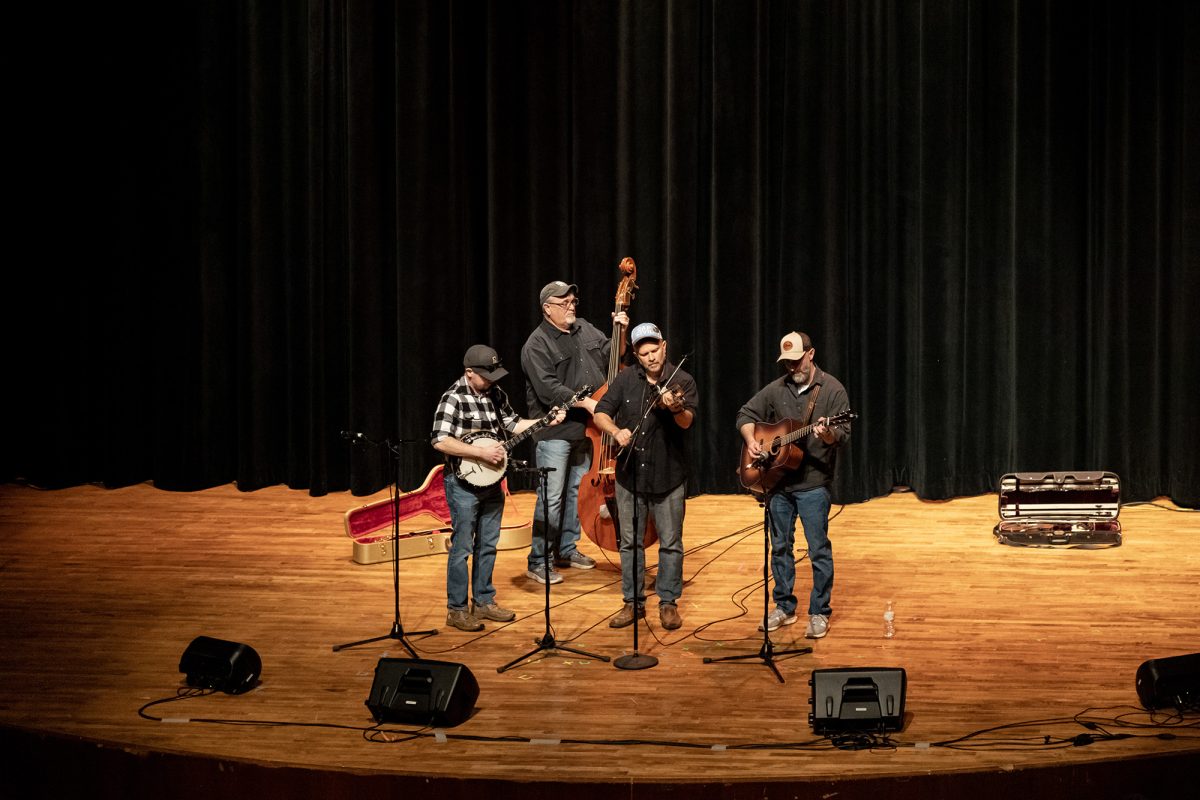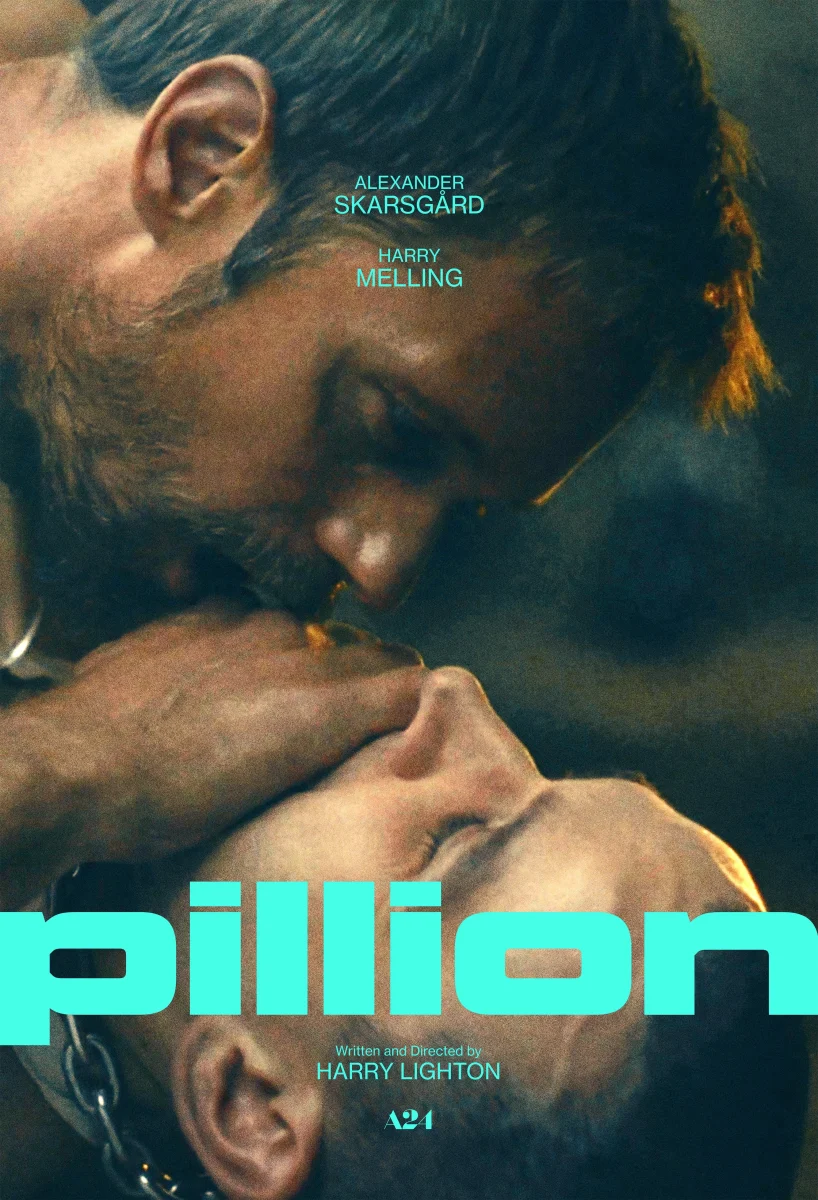In 1960, The Colossus, Sylvia Plath’s first book of poetry, was published in the United Kingdom, starting what would later become one of the most influential yet tragically short careers in literary history. “I shall never get you put together entirely” she wrote in “The Colossus,” and in the musical Plath/Hughes, playing at the Gorilla Tango theater in Bucktown, actors Alexandra Merritt Mathews and Justin Krivda attempt to put together the tumultuous relationship of Plath and Ted Hughes for the audience.
Plath/Hughes is the brainchild of writer and director Eric Shoemaker, a recent University of Chicago alum, and tells the story of Plath and Hughes’ famously volatile marriage as Hughes reflects on their time together later in life. The musical, which features an original score, musical numbers, and choreography, has a cast and crew almost exclusively made up of University of Chicago students and alums.
What is now a 90-minute professional production began as a short play shown at a theater festival in the Logan Arts Center. “At the time we didn’t know that we would be signing up for a two-year deal,” Mathews said. “We thought we were just doing the New Work Week performance, which was in April of 2013. This was just one show, testing the script. I like to call that show a kind of sparknotes performance because it was like the highlight reel of what would eventually become the full play.”
Since that initial performance, Shoemaker, with the help of Mathews and Krivda, expanded the length of the play, made extensive edits to the music and dialogue, and tried to go deeper into the characters. “I think we added things to the narrative that really flush out the neutral position as far as the relationship goes between them,” Krivda said. “You get the good and bad for Ted and Sylvia. It’s not just Ted was an asshole and Sylvia was crazy. It’s not so cut and dry. It’s very foggy. They were two foggy people in a foggy relationship.”
The relationship between Plath and Hughes forms the backbone of the musical, but the exploration of the individual characters really drives the play. Plath suffered from depression for most of her life, and also had a very complicated relationship with her father, who died when she was young, and her mother. “I didn’t immediately say yes,” Mathews said. “I was very concerned that I wouldn’t have the acting chops, and I was really concerned about portraying mental illness. Eventually, I thought about it and I decided that I wanted to be the one to try, so I said yes.”
Mathews’ portrayal of Plath is at times explosive, as she deals with her depression and her relationship with Hughes spirals out of control, yet the scenes of Hughes and Plath together early in their relationship are beautifully intimate and tender. Mathews and Krivda have wonderful chemistry with one another, which makes their unhappy conclusion all the more tragic to watch.
“It’s a very intense hour and a half,” Krivda said. “By the end of the play we’re both weeping. To get to that point emotionally is very difficult and it takes so much out of us.”
Krivda and Mathews also have no break during the performance; the musical focuses exclusively on Plath and Hughes, and there are no other characters seen onstage. With no intermission, Krivda and Mathews are acting and singing for a full 90 minutes. The music, which is somewhat reminiscent of a stripped-down Les Misérables, varies between vocal harmony via duet and intense, emotional solos. There is also a surprising amount of dancing and choreography during the musical numbers. As artists themselves, the cast members had a lot to work with when composing the music for the play.
“The lyrics and the dialogue are borrowed heavily from their actual poetry,” Krivda said. “Of all of the ways to portray these two people, focally there is such focus on their actual art and how they express themselves through their poems. I think that’s one of the fascinating things about being a part of this play.”
The play has been running for almost two years now, an accomplishment for any production, especially a student one. This has allowed the cast members to immerse themselves in the characters and truly embody the figures they portray.
“Most plays have a definitive time schedule,” Mathews said. “This is more like episodic television in a way. You get to play the same person for such a long period of time and I think that has been incredibly beneficial to us because we get to do a lot of nuanced work that we wouldn’t have been able to do otherwise. We’ve had so much time to figure out what’s going on in their heads.”
The relationship between Ted Hughes and Sylvia Plath has fascinated the public since they rose to prominence in the 1960s, inspiring numerous artistic tributes, among them the 1979 film The Bell Jar, and, more recently, the song “Colossus” by the indie group Of Montreal.
“Out of all of the movies and books that have been put out there, I think this is much more accurate than anything I’ve ever seen,” Mathews said. “Obviously no one knows what happens behind closed doors, but the playwright, Eric Shoemaker, talked to their family friends a lot in research for the show. We got as close to an insider’s view as possible, I think.”
Plath/Hughes will be playing Saturday Nov. 15 and 22 at 7p.m. at the Gorilla Tango Theatre in Bucktown. Tickets are $20.








